LEARNING EXPERIENCE
FTall project aims to design project-based experiences linked to Fashion-Tech market needs and to the developed Fashion-Tech curriculum. An innovative pedagogy and teaching methods in the format of an educational model specifically for the Fashion-Tech has been co-designed and will be tested in 3 pilot courses with students and lecturers from the 5 HEIs partners, including the perspective of industry professionals in organizion and delivery.

METHODOLOGY
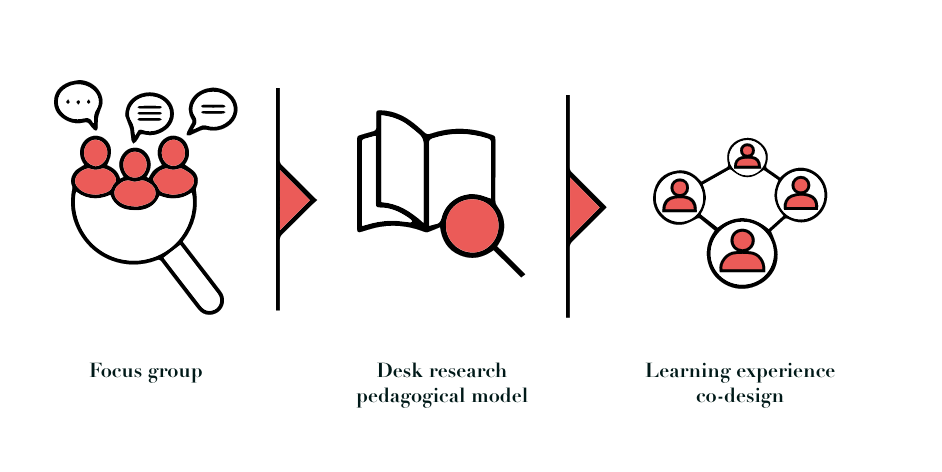
Stemming from preliminary results gained from focus groups held with industry partners (WP1- Knowledge exchange), and informed by innovative pedagogic models, a co-design process has been implemented to create learning experiences aimed at satisfying the expected level of competence and innovation according to the field-oriented approach in Fashion-Tech and to be tested in 3 pilot courses
EDUCATIONAL MODEL GUIDELINES
The main features of the format/educational model are:
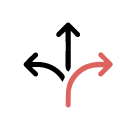
Learning Flexibility
Stemming from preliminary results gained from focus groups held with industry partners (WP1- Knowledge exchange), and informed by innovative pedagogic models, a co-design process has been implemented to create learning experiences aimed at satisfying the expected level of competence and innovation according to the field-oriented approach in Fashion-Tech and to be tested in 3 pilot courses
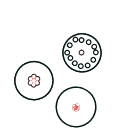
From multidisciplinary to interdisciplinary learning
Digital educational approach through both traditional educational interactions and non-traditional educational interactions.

Interaction and engagement
Students will be stimulated by several engagement tools, such as discussion forum, chats and digital classrooms, in order to ensure a connected student experience in a digital environment.

Common glossary definition
Each course will have a preliminary phase of glossary exchange and fundamental learning from different disciplines in order to allow teams to share a common language.

Companies involvement
Company experts will be integrated in the courses preparation, in teaching and coaching activities in order to network with real world challenges.

Real world challenges
The second phase of each course will be characterised by real world challenges that will stem from specific requests of the companies in the Fashion-tech sector.

Personalized learning
Students will be provided with differentiated types of instructions, following a student-centred learning perspective that is intended to facilitate the academic success of each student.

Openness
Lectures will be widely accessible via the online community platform of each institution, and educational materials produced by the partners will be released as open educational resources (OERs)
LEARNING EXPERIENCE TIMELINE

LEARNING EXPERIENCE STRUCTURE
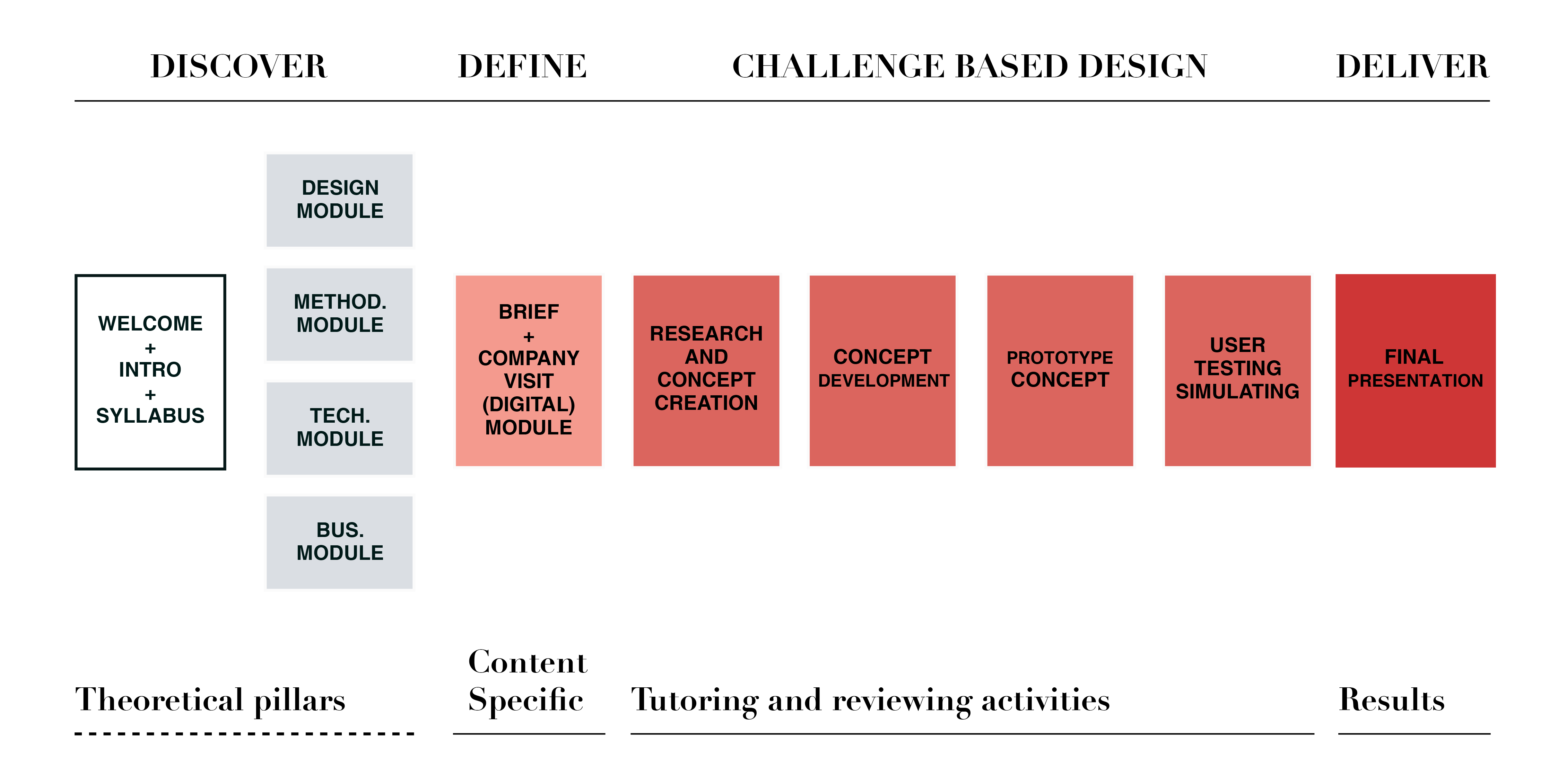
The courses develop in 50 hours (8 weeks) delivering the knowledge and understanding of new ways to design a fashion product that integrates and interfaces with digital technologies of various types through lectures about theory and application examples, lectures about tools and software to be used, and preparatory applicative exercises. Each digital course will be delivered with a preliminary theoretical part assigned in an asynchronous way (Discover) and a subsequent synchronous challenge-based part (Design).
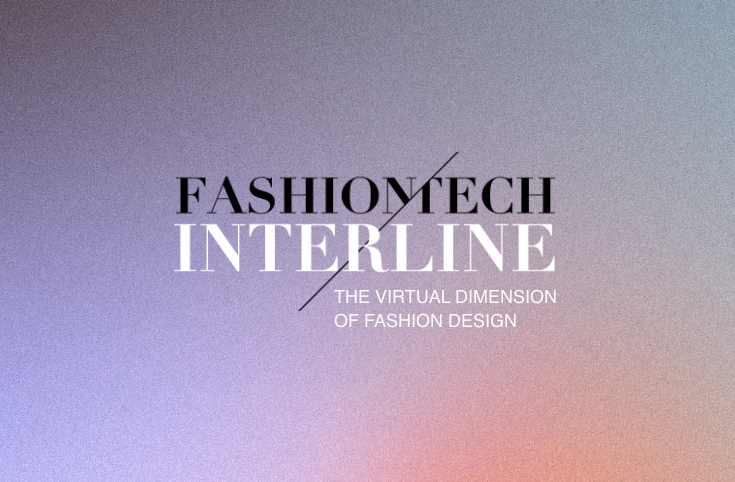
Fashion-Tech Interline
THE VIRTUAL DIMENSION OF FASHION DESIGN
International and interdisciplinary digital course
January 7th - March 8th 2021
Leading institution: Politecnico di Milano - Design department
Involved Companies: Grado Zero Innovation s.r.l. and Pespow s.p.a.
Involved Higher Education Institutions: Politecnico di Milano - School of Design; ESTIA École Supérieure Des Technologies Industrielles Avancées; Högskolan I Borås; University of the Arts London - London College of Fashion; Technische Universiteit Delft
Abstract: The digital course aims to advance students’ knowledge on how digitalization and virtualization of the design process affect the entire value chain management, including concept development and prototyping, production, supply chain operations and business model innovation for faster, smarter, more efficient and sustainable garments.
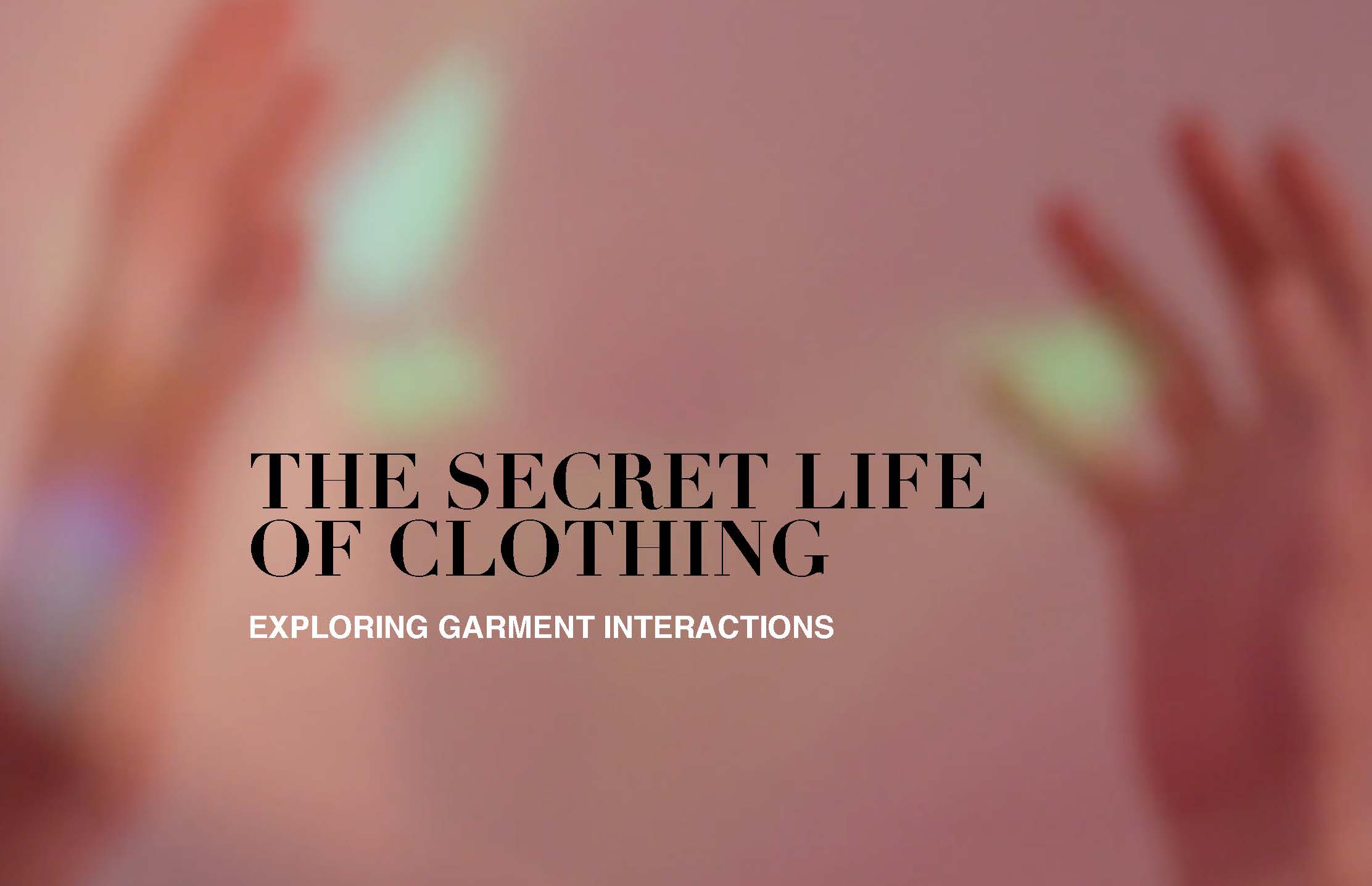
The Secret Life of Clothing
EXPLORING GARMENT INTERACTIONS
International and interdisciplinary digital course
29th September 2021 – 1st December 2021
Leading institution: University of the Arts London - London College of Fashion
Involved Companies: Sefleuria (Jessica Graves) and Pauline Van Dongen Studio (Pauline Van Dongen)
Involved Higher Education Institutions: Politecnico di Milano - School of Design; ESTIA École Supérieure Des Technologies Industrielles Avancées; Högskolan I Borås; University of the Arts London - London College of Fashion; Technische Universiteit Delft
Abstract: How can data revealed by worn objects be used to create environmentally, socially and economically sustainable, interactive experiences? Fashion wearable technologies are often designed for novelty and status display, meaning they are only used for a short time before obsolescence and disposal. This is not sustainable for the planet or their designers, whose business ventures often fail. They can also capture very personal data, which users have little control over. The course guides students through a process of research informed design ideation for an interactive wearable technology concept.
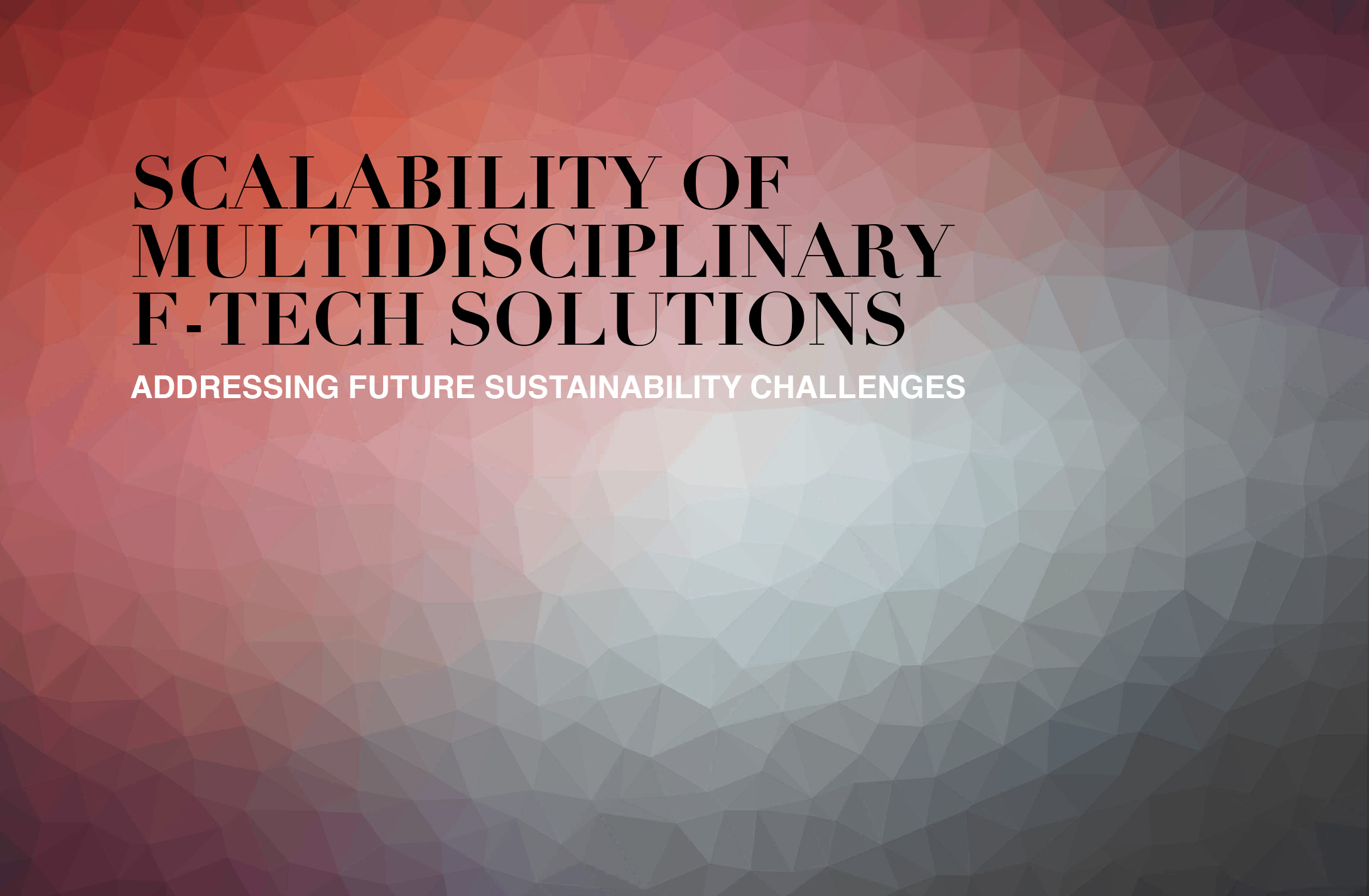
Scalability of Multidisciplinary F-Tech Solutions
ADDRESSING FUTURE SUSTAINABILITY CHALLENGES
Digital course, 13th September 2021 – 30th November 2021
Leading institution:University of Borås - Swedish School of Textiles (Sweden)
Involved Companies: WLY – We Love You and Centexbel
Involved Higher Education Institutions: Politecnico di Milano - School of Design; ESTIA École Supérieure Des Technologies Industrielles Avancées; Högskolan I Borås; University of the Arts London - London College of Fashion; Technische Universiteit Delft
Abstract:The course focuses on the field of Fashion Tech and their value chains, aiming to advance students’ knowledge on identifying future sustainable development challenges and how these can be solved by developing inter-disciplinary and scalable fashion-tech solutions (covering design, technology, management aspects). The course will discuss scalability from social innovation perspective in terms of scaling-out, scaling-deep and scaling-up dimensions.

The information and views set out in this publication/web-site/study/report are those of the authors and do not necessarily reflect the official opinion of the European Union. Neither the European Union institutions and bodies nor any person acting on their behalf may be held responsible for the use which may be made of the information contained therein.
